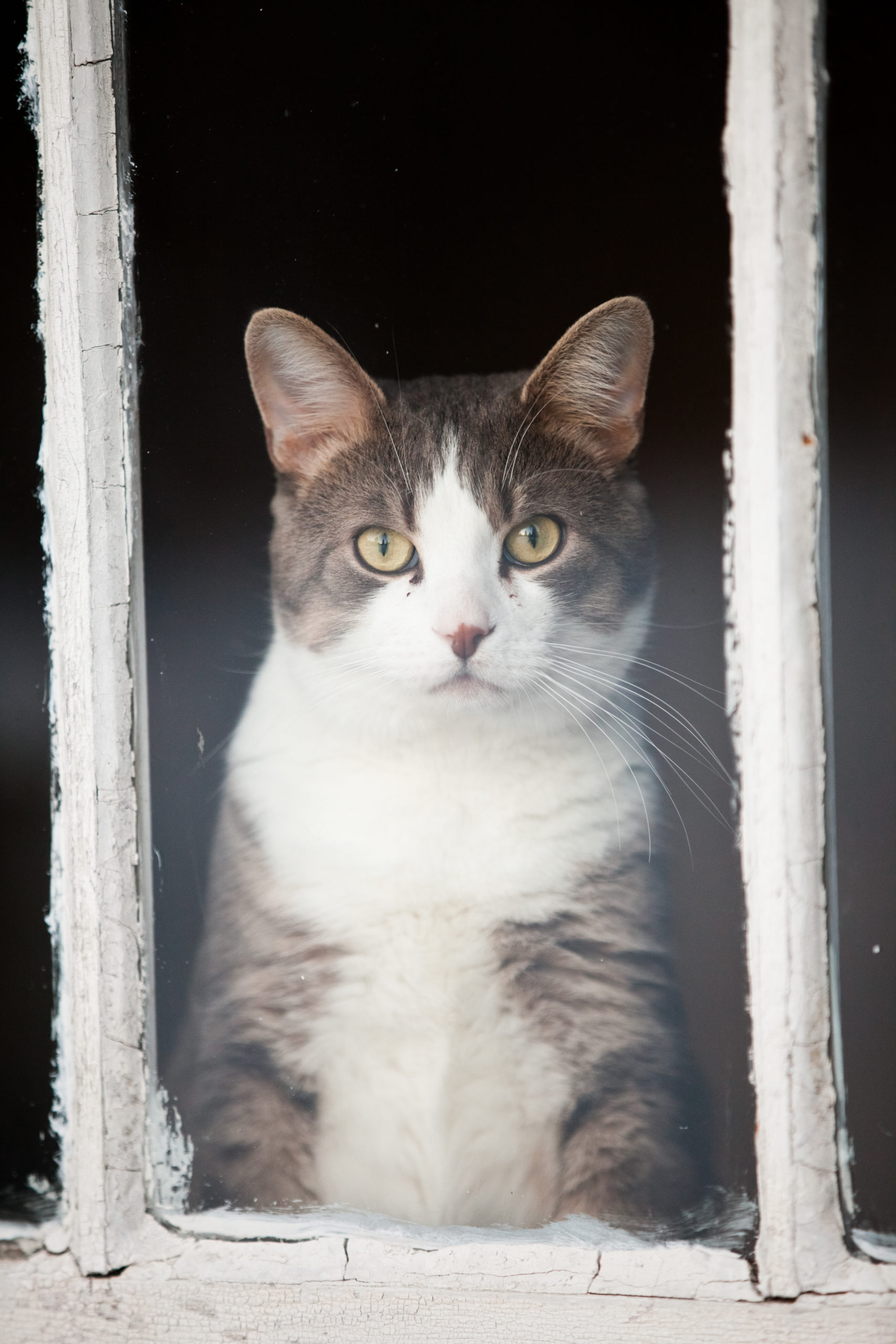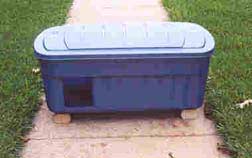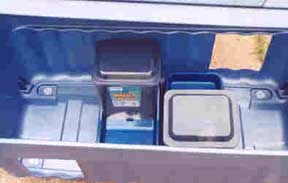A feral cat will likely never be anyone's domesticated pet. But this does not mean that he does not deserve to live. We believe that feral (wild) cats have as much right to live as any other creature. And not just to live, but to have the best quality of life possible. We must remember that feral cats have no choice in the circumstances they find themselves in. They are either abandoned or lost cats who have not been spayed or neutered and, left to fend for themselves, have reverted to a feral state. These cats continue to reproduce to form feral colonies.
Our "Race to Reduce Litters" feral program promotes TNR (Trap, Neuter, Return), which is the only humane and effective method of feral cat management. It had been used successfully for the last 25 years in the United Kingdom, Europe and Africa. If ferals are trapped, sterilized and returned to their original location, their numbers can be controlled. The benefits of this program include no more kittens, healthier cats, less fighting and less nuisance behavior.
If you are in need of resources outside of the Dallas/Fort Worth area, please refer to the following website: Alley Cat Allies.
Our Team Feral Volunteers work with concerned individuals to assist thousands of feral cats in our community. We are able to offer low cost sterilization, convenient clinic locations, and humane traps, along with education and support. As a result, people become active participants in the goal to make our community a better place for these cats.

If you are interested in assisting feral cats that you have encountered, please e-mail us at feral@feralfriends.org. A Team Feral volunteer will contact you via email or phone to explain our program, offer helpful advice on trapping, transport, and future care for your feral cats. Our volunteers are generally unable to handle the trapping for you, as there are simply not enough of us to do so. We do assist the eldery, handicapped, etc. with trapping when needed. Our program's main focus is on providing the education and tools to concerned individuals so they can take action in order assist more feral cats in our community.
A Caregiver Agreement must be submitted to Feral Friends. Once the Caregiver Agreement is returned, identification numbers will be issued to you for each of the cats you wish to assist.
We track every cat that comes through our system in order produce statistical data. Caregivers' personal information is never shared with the public.
We ask for donations to help us cover the cost of the surgeries. Our approximate costs are $40 per male and $50 per female and we ask that people donate what they are able.
We accept checks or money orders mailed to our P.O. box, or you can visit our secure server on this website under "Donation Info" to make a credit card donation.
We have a list of Veterinarians that currently participate in our Feral Spay/Neuter Program. You should make an appointment with the vet that is most convenient to you and give the ID numbers of the cats you are planning to trap.
If your trapping is unsuccessful, please contact the vet to release the surgery space and re-schedule.
You are welcome to check out a humane trap from us. We use both Tomahawk and Tru-Catch traps. We have them at various locations around the DFW area. Please let your Team Feral volunteer know if you need to check one out. There is a $50 refundable deposit required for each trap. Check out time for traps is two weeks. If you have a large colony of cats to catch and will need a trap for an extended period of time, you can purchase a humane trap at Home Depot or at most feed stores.
For tips on how to catch ferals to get them to the vet for surgery, and also tips on how to care for them after surgery, Click Here.
If you have a cat that absolutely will not go into a regular trap, we do have three drop traps that we loan out.
These have proven very successful for caregivers who have used them.
One thing that is very important in caring for a feral colony is a clean feeding station. It is not a good idea to simply dump food on the ground for the cats to eat, as this could draw unwanted attention to the cats. People can see them out in the open eating, and the food can also leave a mess that draws ants, mice, and other critters.
Setting up a clean feeding station in a hidden area will keep the cats out of the line of site of those who would rather they not be there, and will not leave a mess. Here is an example of one type of feeding station set-up. It uses a simple Rubbermaid container with holes cut on each side, and wooden "feet" screwed to the bottom.
Inside the container are two feeders, one for food and one for water. The top of the container can be removed so the feeders can easily be cleaned and re-filled.

